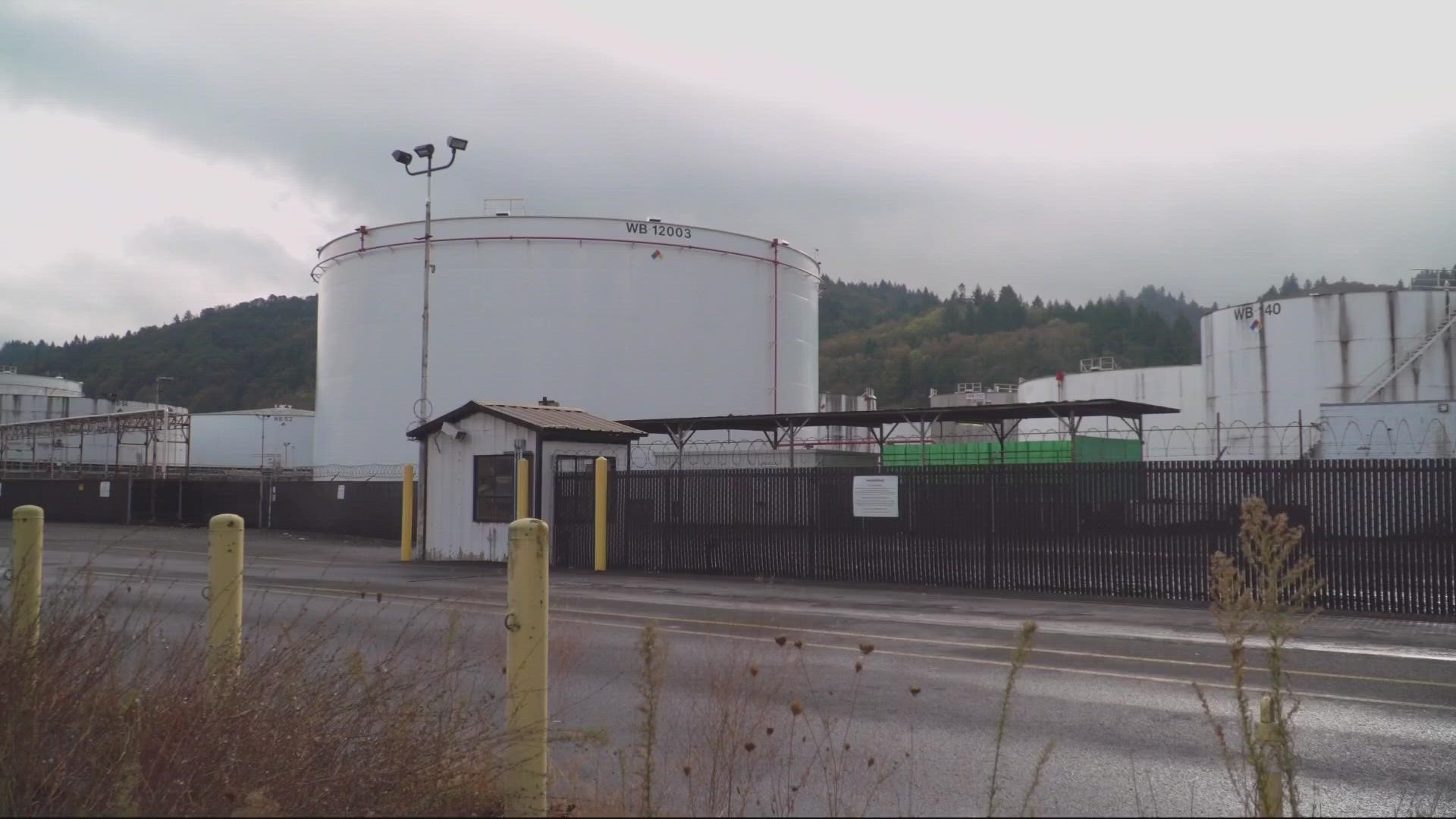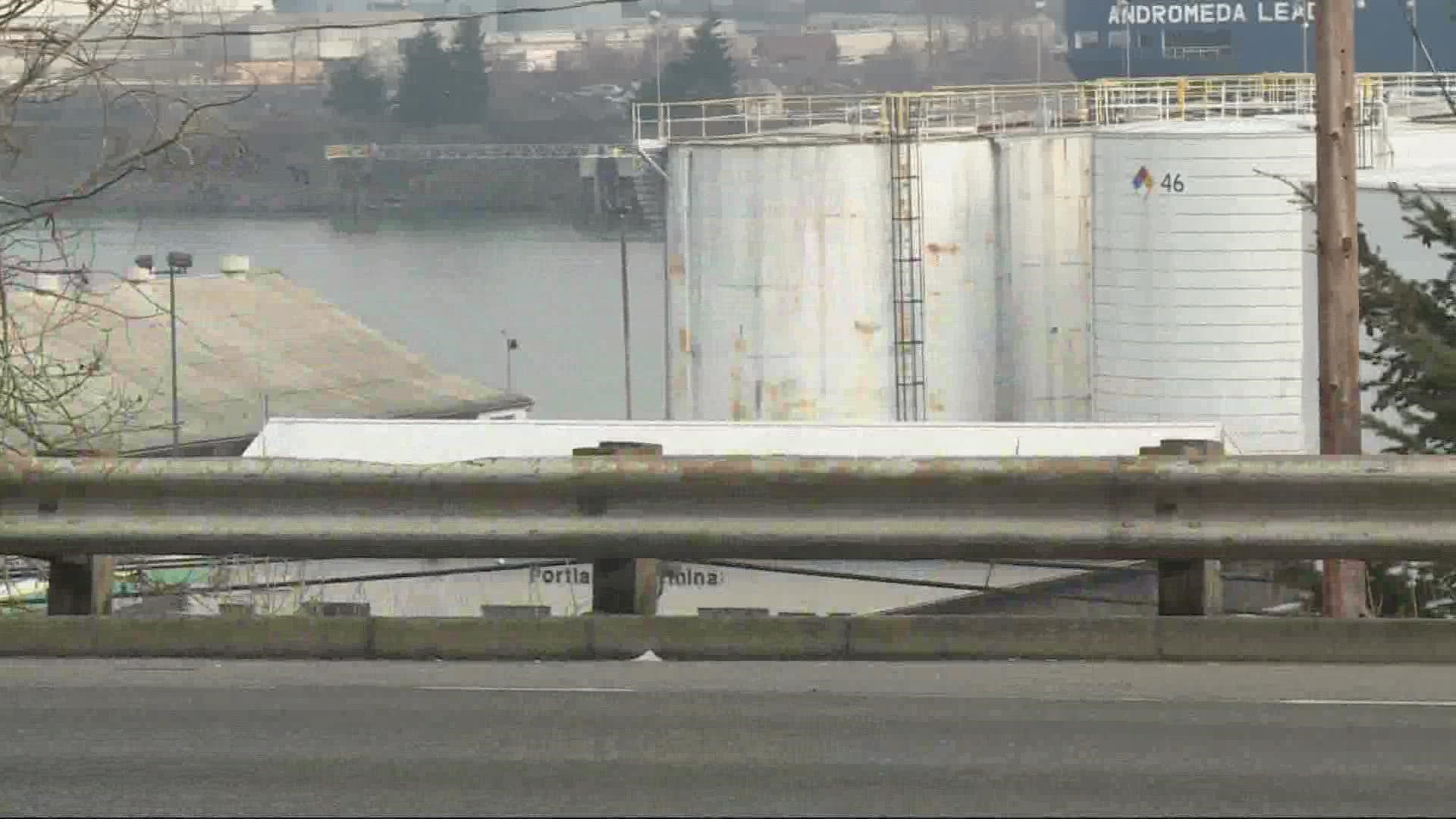PORTLAND, Ore. —
The state of Montana and several fossil fuel industry groups have filed a lawsuit in federal court against the city of Portland over a ban on certain kinds of infrastructure in the city.
The suit, filed Tuesday in Oregon District Court, alleges the city’s policies are discriminatory against out-of-state companies.
The lawsuit stems from policies first implemented in 2016, which banned the development of new fossil fuel infrastructure capable of transporting or storing more than 200 gallons.
But the policy included exceptions for local use, like the Portland International Airport and other Portland businesses. That puts the city in violation of the Commerce Clause of the constitution, which prohibits states and cities from interfering with interstate commerce, according to Montana Attorney General Austin Knudsen.
“Portland’s hypocritical policies kneecap Montana industries and workers from getting our energy products to market while trying to protect its own citizens from the consequences of its short-sighted actions,” he said in a statement.
Nick Caleb, an attorney with the Breach Collective, an Oregon-based environmental advocacy group, had a much different take on the lawsuit.
“The straightforward argument they're making is that their ability to earn profits via risky transport and storage of hazardous materials in Portland trump's the right of Portlanders be safe from massive industrial disasters,” Caleb said.
Up to 90% of the liquid fuel in Oregon is stored in the Critical Energy Infrastructure Hub, a collection of hundreds of fuel storage tanks on the banks of the Willamette River in Northwest Portland. The area is built on soil prone to liquefaction and could see a catastrophic spill in the event of a major earthquake.
But Kathllen Sgamma, president of the Western Energy Alliance, one of the parties bringing the lawsuit, said the policy was never intended to address earthquake safety and using that as a defense is hypocritical.
“They have no problem storing oil and natural gas for purposes of use in the Portland area,” she said. “Their ban is just on any new facilities that would enable export or shipment.”
Caleb strongly disagreed.
“That code was intended to protect the health and safety of Portlanders by mitigating the risks of a huge industrial catastrophe,” he said, noting that the recent derailment of a train carrying toxic chemicals in Ohio was a prime example of the danger Portlanders could face.
Aside from the state of Montana and the Western Energy Alliance, the Pacific Propane Gas Association, the Idaho Petroleum and Convenience Store Association and Christensen, Inc., which is a fuel, lubricant and propane distributor based in Washington, also joined in the lawsuit.
Portland’s policies have been previously challenged three times in state courts, and each time a judge has remanded them back to the city with calls to add more supporting evidence. The newest version of the policy was adopted last year.
The new lawsuit calls for a judge to nullify the policies and to impose a permanent injunction to prevent the city from taking similar actions in the future.
If the parties don’t agree to a settlement, the case could go to trial in the coming months.


